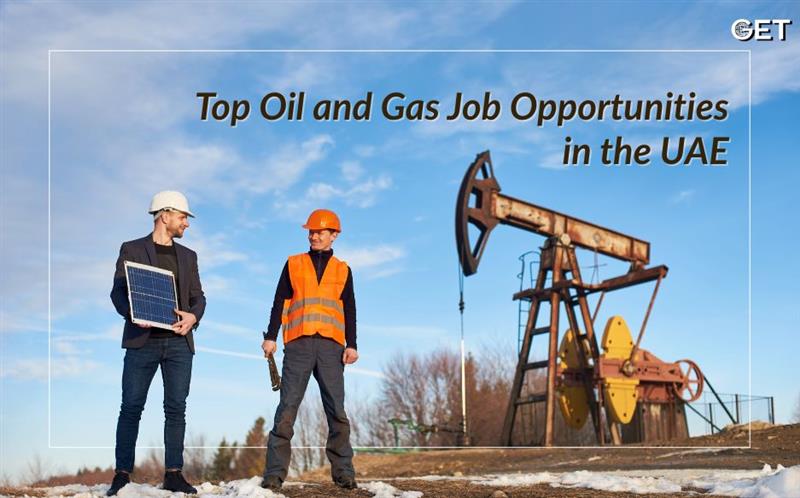
The global energy landscape is undergoing a significant transformation. Growing environmental issues, technological headway, and modifying policies have driven the change toward cleaner renewable energy options. While change holds tremendous promise, it also presents an array of challenges ranging from skill shortages and geography to policy issues and changing workforce needs.
For companies and professionals in the energy sector, an active approach will be necessary to navigate these issues. Choices today will not only shape the path of the oil and gas sector but also the legacy we set for our children. Navigating through workforce issues, encouraging talent development, and adopting an innovation mindset will be necessary to an effective energy transition.
The renewable energy sector needs a myriad of skills and specialized knowledge to plan, develop, and execute these clean energy methods. Experts in engineering, project management, environmental science, and technical knowledge are of great demand.
Experts from different backgrounds, from engineering and project management to environmental science and technical operations are responsible for driving the clean energy revolution.
Together, these experts constitute a dynamic and cooperative workforce that fuels the development and sustainability of the renewable energy industry. With the industry evolving and growing further, the need for qualified talent will continue to be the bedrock of its success.
With increasing global focus on renewable energy, the industry is growing at a frantic pace fueled by technological advancements and sustainability efforts. This growth is creating an enormous demand for skilled personnel in various streams. With advancements in renewable technologies becoming more efficient and economical, they are rapidly surpassing conventional energy sources, culminating in an explosion in employment opportunities.
Strong investments and policy support from governments and private sector investors are transforming the workforce. Beyond the usual roles of engineers, project managers, and environmental scientists, there is an increasing requirement for energy storage specialists, grid integration experts, and energy efficiency experts. Such new fields of expertise are imperative for driving change and responding to changing energy requirements, creating fresh career opportunities for those interested in sustainability and clean technology.
This investment boom will not only lead to job creation in conventional jobs but also initiate the emergence of new specializations and career tracks. New positions will further bolster the industry’s capacity to respond to changing energy requirements, providing intriguing opportunities for sustainability and clean tech enthusiasts.
The renewable energy industry has multiple interconnected recruitment challenges that need to be addressed with strategic and focused solutions
Expertise is required for renewable energy projects. Employers have to fill this void by creating focused recruitment strategies in consultation with schools and training institutions, and providing internships, apprenticeships, and scholarships to groom future talent.
Most renewable ventures are found in distant or off-shore regions where the infrastructure, e.g., accommodations and transportation, is minimal. Attracting and retaining skilled talent in such places can be accomplished by companies by providing attractive salary packages, accommodation, transport, and relocation incentives and taking advantage of technology like remote monitoring equipment. This practice enables distant or rotational working and lessens the effects of geographic limitations.
In an era that is ever more concerned with sustainability, environmental responsibility by workforce Management companies is a strong draw for high performers. By emphasizing their commitment to building a more sustainable future and promoting strong career development opportunities, including training programs, mentorship, and innovative projects. Employers can build a positive work environment that attracts and retains top professionals.
With the growing demand for renewable energy professionals, traditional recruitment methods may fall short. Digital tools such as online job portals, virtual interviews, and data analytics platforms enable employers to cast a wider net, efficiently screen candidates, and minimize bias. These technologies help identify the best-suited candidates quickly, streamlining the overall recruitment process.
Based on skill gaps and training requirements, investing in domestic workforce development by way of specific training programs, certifications, and academic collaborations has been beneficial. Localisation and nationalisation, balancing government-recommended local hiring with the demand for international expertise. Developing cultural intelligence among leaders and encouraging cross-border collaboration is a good practice to create an inclusive and productive workforce.
With the inherent risks in energy operations, safety is always the top priority. Organizations have standardized safety procedures and ongoing training like emergency drills. They also offer mental health assistance through counseling services, peer support groups, and resources specific to remote or rotational work settings.
Diversity and inclusion lead to innovation and resilience. In order to develop a vibrant workforce, businesses must support gender diversity and facilitate women’s participation in technical and leadership positions, and establish local communities through job opportunities and training programs.
For instance, Support Employee Resource Groups (ERGs) that create a sense of belonging and support a positive organizational culture.
Overcoming global workforce issues needs to be a coordinated effort across industries through collaboration with vocational institutions and universities to have a constant supply of capable talent. It is also achieved by creating avenues for the exchange of technical know-how and best practices region-wise, and involving governments and industry players in designing long-term jobs.
Generative AI has the potential to revolutionize work processes by automating mundane tasks and augmenting strategic decision-making. AI will not replace human employees but complement them, allowing time for more imaginative and intricate problems. AI can be combined with existing systems to enhance workforce planning and promote efficiencies.
Read Also- Advances in Enhanced Oil Recovery: Technologies & Methods for Enhanced Effectiveness
The energy sector’s future depends on the resilience of its workers. As the sector grows, those who invest in talent, adopt technology, and create inclusive workspaces will drive the momentum toward a clean energy future.
GET steps forward to show how its customized recruitment solutions can work to meet your objectives, lead your success, assist candidates and businesses looking for opportunities in the oil and gas industry.

By Get global | July 11, 2025

By Get global | July 3, 2025

By Get global | July 1, 2025

By Get global | June 27, 2025

By Get global | June 25, 2025